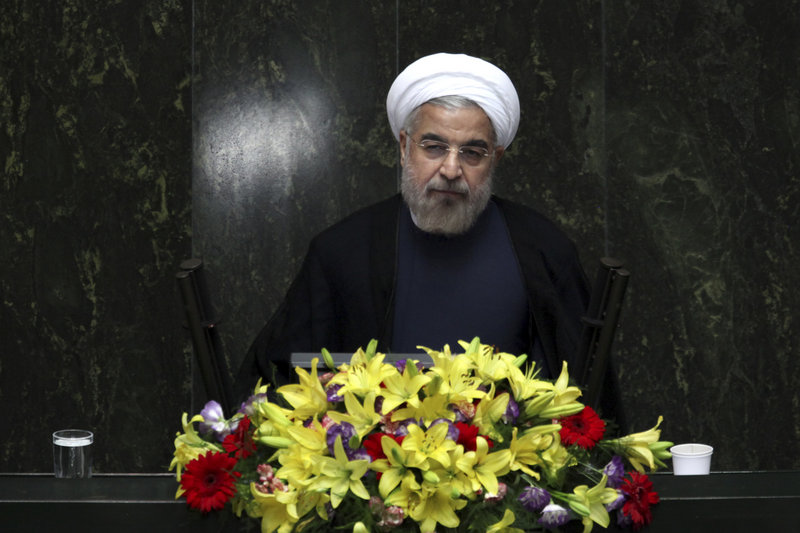TEHRAN – Hopes are soaring among many Iranians that the new president, Hassan Rouhani, will move quickly to address their concerns.
But the biggest challenge he faces may be managing those expectations.
Boosting the sagging economy is high on the list of voter demands. Ethnic and religious minorities are seeking greater protection of their rights. Others want to see how Rouhani will deal with foreign governments over issues such as Iran’s nuclear activities.
Effectively addressing the concerns of a diverse electorate early on will be crucial to the president’s success, analysts say. Rouhani must use the skills he developed as a mediator and diplomat to temper the competing expectations without losing public support.
In his overwhelming victory in the June election, Rouhani captured a broad mix of voting blocs — in rural areas, provincial capitals and ethnic enclaves as well as in the capital, Tehran. As a result, “a wide variety of demands from these constituencies have been made upon his new government,” said Kevan Harris, a Princeton University sociologist who conducted research in Iran during the election campaign.
Satisfying those constituents while navigating the challenges posed by domestic political adversaries and foreign powers is a skill Rouhani’s predecessors lacked, political analyst say.
Analysts familiar with Iran’s political terrain say there are several things he can do to maintain the momentum that swept him to a first-round election victory. They include addressing rising inflation and unemployment and easing some domestic security measures — for instance, releasing political prisoners and allowing a freer flow of information.
He could also make clear his willingness to engage with other countries, especially the United States and Western European nations, in tackling regional concerns.
Rouhani is unusual among Iran’s presidents, analysts say, because he appears to think that a country with so many competing interests cannot be ruled by a single faction and plans to include in the government figures from across the political spectrum. By appointing ministers and advisers based on merit and previous experience rather than ideology, Rouhani is sending a message to Iranians that there will be less government interference in their daily lives.
But contentious confirmation hearings for Rouhani’s cabinet nominees, whom some conservatives have accused of supporting Iran’s enemies, show that Iranian politics remain fractious.
“It’s quite clear that hard-liners have been marginalized, but they shouldn’t be written off completely,” said Mohammad Ali Shabani, a Tehran-based analyst.
The outcome of those political battles will invariably influence how Rouhani approaches Iran’s most pressing issues and how the country is seen abroad.
Many analysts say Rouhani must first turn his attention to foreign policy and seek a way to ease the international sanctions imposed on Iran because of its nuclear activities.
But a nuclear deal with Western governments appears unlikely unless Iran’s leadership is assured that sanctions are to be reduced soon after.
Even if a deal were to be reached and international economic pressure eased, the Iranian economy would require massive reconstruction.
In the past year, the country’s oil revenue has fallen by half, and the value of its currency, the rial, has declined by 70 percent. Inflation is running at well over 40 percent, according to Rouhani’s economic advisers.
If inflation is brought under control, there could be a greater chance to spur economic activity.
Send questions/comments to the editors.



Success. Please wait for the page to reload. If the page does not reload within 5 seconds, please refresh the page.
Enter your email and password to access comments.
Hi, to comment on stories you must . This profile is in addition to your subscription and website login.
Already have a commenting profile? .
Invalid username/password.
Please check your email to confirm and complete your registration.
Only subscribers are eligible to post comments. Please subscribe or login first for digital access. Here’s why.
Use the form below to reset your password. When you've submitted your account email, we will send an email with a reset code.